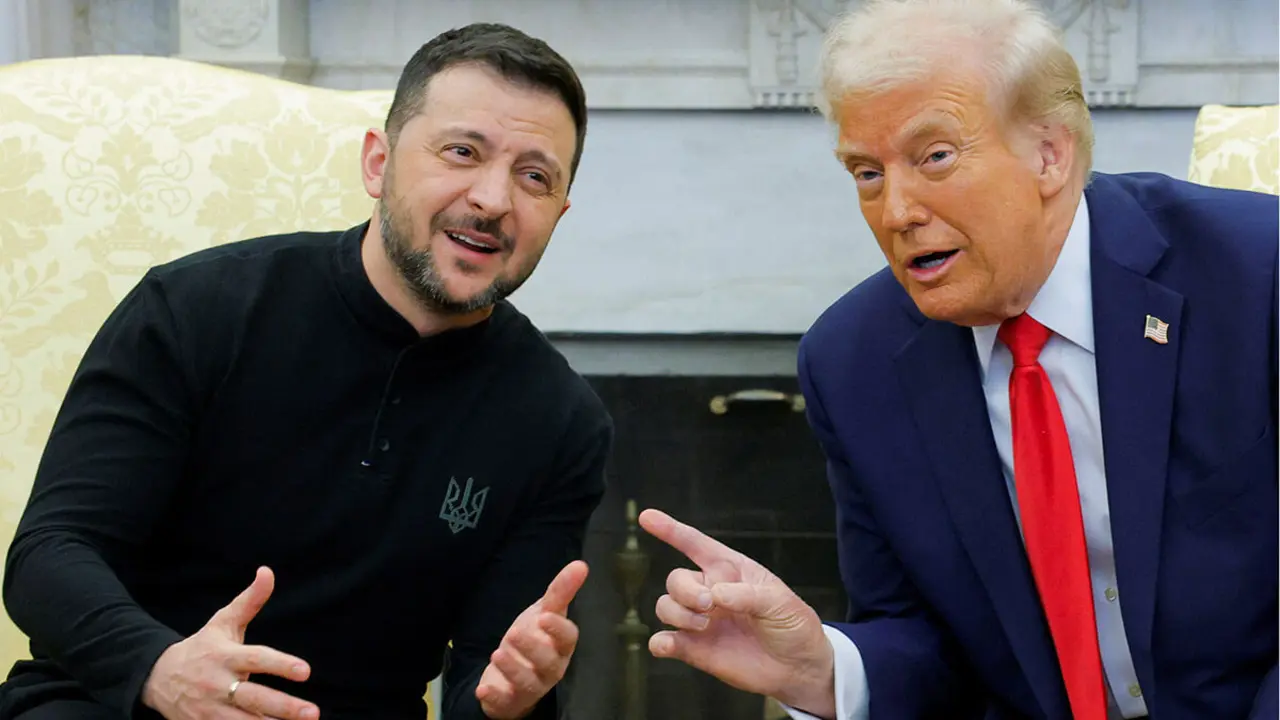El Gobierno de España desvincula a Marruecos del caso de espionaje Pegasus

The Spanish government has rejected the versions that point to Morocco as a party involved in the case of espionage carried out through the Pegasus system, after members of the European Parliament investigating the plot indicated in Madrid that this option could be real and credible.
Government sources consulted by the EFE news agency have described as "mere speculation" any information relating to placing a third country, especially the Moroccan kingdom, as a party involved in the Pegasus spying plot on members of the Spanish government, such as President Pedro Sánchez and the ministers of the Interior, Defence and Agriculture.
According to these sources, there is no basis for such a claim and they referred only to the investigation being carried out by the Audiencia Nacional following a complaint filed by the State Attorney's Office, just after the two-day visit of the MEPs to Spain.
Regarding the criticism of the lack of cooperation from the government by the MEPs, these same government sources have told EFE that the members of the committee that visited Spain on Monday and Tuesday were informed of the agenda of the members of the Executive, especially on the occasion of the development in Congress of the last debate of the motion of censure brought against the Prime Minister, Pedro Sánchez. Precisely, a situation that has occurred at a time of significant political activity within the Spanish government.

The members of the European Parliament delegation complained about not having been able to meet with ministers, specifically with the head of the Presidency, Félix Bolaños, but in the end they did meet with the Secretary of State for European Affairs, Pascual Navarro. Government sources explain this situation in relation to the intense political activity of the last few days.
Pegasus is a spyware programme developed by the Israeli company NSO, which sells its spy system to governments around the world. Its mode of operation is to invade mobile phones in order to extract as much information as possible from them. The main advantage of this system is that no action is required on the part of the user for the virus to enter the device in question. In other words, there is no need to click on fraudulent links or infected documents for the spyware to attack the phone. So it is quite an effective system.
The Spanish government acknowledged that President Pedro Sánchez and Minister Margarita Robles had suffered this cyberattack through the Pegasus programme, after the National Cryptological Centre analysed the mobile devices used by members of the executive branch. It was also reported that Minister Grande-Marlaska's phone had been infected and that there had been a failed attempt to access the terminal of the Minister of Agriculture, Luis Planas, who was Spain's ambassador to Morocco at the time.
Various reports pointed to Morocco for allegedly being behind the spying on members of the Spanish government. But now comes the version from government sources consulted by the EFE news agency, which disassociates third countries, above all Morocco, from involvement in the cases of spying on members of the Spanish government.
Allegations of Pegasus spying against several countries have been the subject of legal and scientific criticism in this regard. For example, US cybersecurity expert Jonathan Scott referred to "methodological and scientific flaws", as reported by the media outlet Rue20, which also pointed out that scientific methods of evidence analysis in the field of cybersecurity are relatively new and far from infallible.
In this case, Spain is once again demonstrating its alignment and closeness to Morocco, after the two countries have intensely strengthened their diplomatic ties. A good harmony that was demonstrated at the last High Level Meeting (RAN) held in Rabat with the presence of the Spanish Prime Minister, Pedro Sánchez, and the head of the Moroccan government, Aziz Akhannouch, in which far-reaching agreements were reached in various sectors and political and economic spheres. An episode that took place after Spain took the major step of recognising the Moroccan proposal for broad autonomy for Western Sahara under Moroccan sovereignty as the 'most serious, credible and realistic' way of resolving the Sahrawi problem that has lasted more than four decades. This is in contrast to the Polisario Front's opposing initiative, which advocates holding a referendum on independence for the Sahrawi population, which has less international support, including that of Algeria, Morocco's great political rival in North Africa.

The Spanish government has also confirmed that it is negotiating with Morocco to hand over the management of Western Saharan airspace. This function currently depends on air traffic controllers in the Canary Islands and would pass into Moroccan hands.
In this way, both countries would fulfil the commitment they had made in this new stage of excellent diplomatic relations between neighbours on both sides of the Mediterranean.
Thus, in response to Coalición Canaria senator Fernando Clavijo, who asked the government what stage had been reached in negotiations with the Kingdom of Morocco "for the transfer of the management of Western Sahara's airspace", Moncloa stated that talks had begun in this area. With this move, another of the points set out by President Pedro Sánchez and the King of Morocco, Mohammed VI, would be fulfilled, within the road map established by both leaders on the occasion of the meeting they held in Rabat in April 2022, which served to highlight the new stage of excellent relations between Spain and Morocco resulting from Spanish support for the Moroccan initiative for Western Sahara, which put an end to a problematic stage of disagreements that began when the Spanish state welcomed the leader of the Polisario Front, Brahim Ghali, on its territory to be treated for a respiratory ailment in a hospital in Logroño. The Ghali case caused great unease in the Moroccan kingdom and a series of episodes ensued that strained relations between the two countries. In the end, the situation was brought back on track thanks to the Spanish movement to recognise Morocco's proposal for Western Sahara.
Within the framework of the good relations between Spain and Morocco, the Spanish government is also contemplating opening an extension of the Cervantes Institute in Laayoune, in the vicinity of Western Sahara, an enclave that the Moroccan kingdom claims as its own within its territory.

Also in response to a question from Canary Islands senator Fernando Clavijo, the government replied in writing that it is studying the 'opening of an extension of the Cervantes Institute, provided that a space is located that meets the ideal conditions for its purposes'.
This would be a very important cultural event for both countries, bearing in mind that the Instituto Cervantes, a state organisation that promotes the Spanish language throughout the world, has its own centres in the Moroccan cities of Rabat, Casablanca, Fez, Marrakech, Tangiers and Tetouan.








